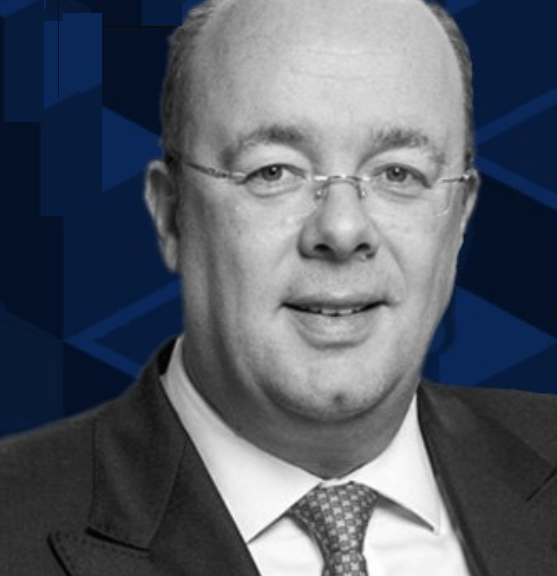Exclusive: ‘No quick fixes’ in 2022 as Deutsche Bank’s global investment chief discusses inflation and central banks

Inflation and central banks will be in focus next year.
In fact, 2022 should be the year where central bank policy really starts to change gear, with other central banks to follow the Fed’s line on tightening, according to Christian Nolting, Global Chief Investment Officer at Deutsche Bank.
“But there will be plenty of other regime shifts underway too, in terms of inflation, climate, geopolitics and technology,” Nolting discussed with City A.M. this morning.
All this change will make for an environment where complacency around any “baseline” scenarios should be avoided, the Deutsche Bank veteran said, who joined the German giant in 1991 as an apprentice and has held senior roles in Singapore, London, New York and Frankfurt.
“The pandemic has already shown us that full and quick fixes to complex problems are rare. We should view 2022 as a transition year, enabling investors to position portfolios for the challenges ahead.”
“The world has changed over the last two years and many economies are still struggling to readjust.”
Christian Nolting, Global Chief Investment Officer at Deutsche Bank Private Bank.
“Economic recovery from the lows of mid-2020 was never going to be completely straightforward. It has required high levels of both monetary and fiscal policy support.
High rates of inflation are an important symptom of this readjustment process, he continued. To a large extent, they reflect a mismatch between the recovery of demand and supply.
“We can see this in disruption to global production and supply chains but also in labour markets.”
Change is in the air
Fixing such mismatches will not stop the process of change, argued Nolting, pointing out “the world economy is a dynamic place.”
“To paraphrase what the ancient Greek philosopher Heraclitus is supposed to have said: it is impossible to step in the same river twice. The river is different and you as a person are different too. The inflation “river” is always changing with different drivers; your own personal inflation expectations are changing too,” he said.
What change means is that effective risk management of portfolios needs to be complemented by longer-term considerations of portfolio aims and composition: “you need to think in a structural, rather than reactive, way. I think that there are two essential components to this.”This is an important time to focus on strategic asset allocation, Nolting continued.
“Using market timing around such complex processes of change won’t be enough, with an effective strategic asset allocation likely to prove a much more effective and reliable source of long-term returns.”
Christian Nolting
This may also be a less stable investment environment than first appears. Financial repression – artificially low or negative real interest rates – is clearly here for some time to come, he stressed.
“But even relatively small changes in interest rates can have major direct and indirect effects on asset classes. We should also not assume that a very traditional asset allocation, for example the classic 60/40 equity/bond allocation, will work well. More sophisticated approaches will be needed.”
Climate and ESG
Environmental and ESG issues more broadly, such as including social and governance aspects, will get even more important for portfolios, Nolting predicts.
“Environmental issues are now firmly fixed centre-stage in global policymaking, and the implications for investors go far beyond higher rates of inflation.”
“Whatever your stance is here, potential risks, such as around stranded assets, have to be faced up to. The switch to a carbon-neutral economy will also, of course, create many interesting opportunities,” he added.
“2022 should be viewed as a transition year as the global economic and investment environment evolves in search of a new reality. Acting now on strategic asset allocation and ESG in portfolios and should help capture this process of change,” Nolting concluded.